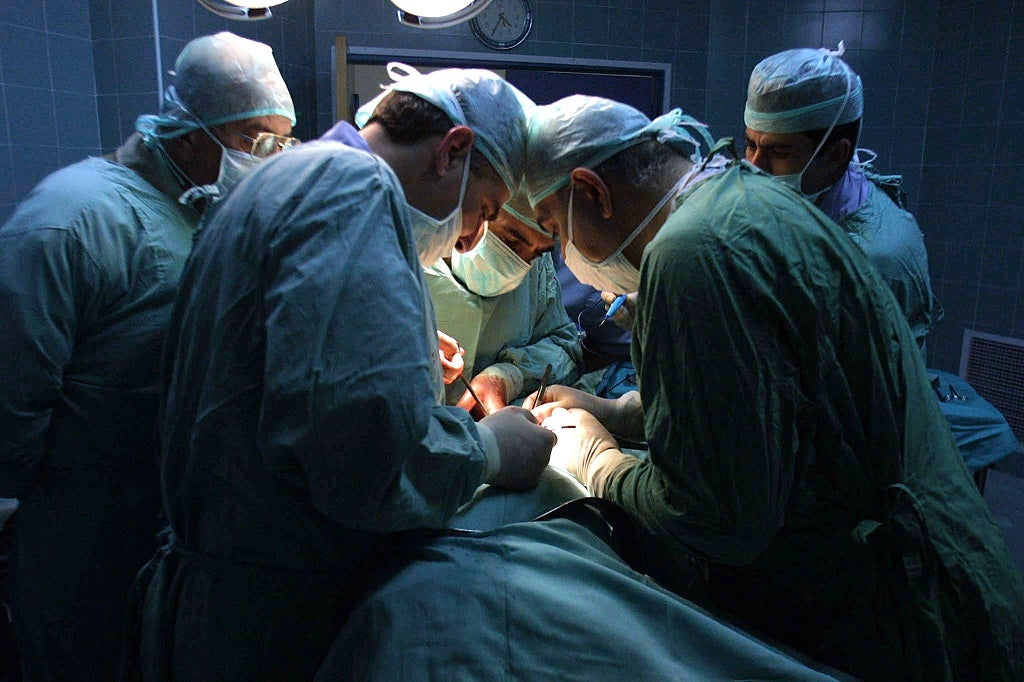Organs from a recently-deceased baby successfully transplanted to two patients
It is the first time in Britain that transplant surgeons have carried out such an operation involving a new-born child

Doctors have successfully transplanted organs from a new-born baby, who died six days after birth, to two patients who are both doing well, it was revealed last night.
It is the first time in Britain that transplant surgeons have carried out such an operation involving a new-born child, a 3kg (6.6 pounds) baby girl who suffered irreparable brain damage in the womb, doctors said.
The donation involved the removal of the baby’s kidneys, which were transplanted into a patient with renal failure, and liver cells, which were donated to a second recipient who had liver damage.
Neither the baby’s family nor the organ recipients are being named on the grounds of patient confidentially.
Doctors tried to revive the baby, after it became obvious that she had suffered extensive brain damage, by cooling her body for 72 hours. However, she was never able to breathe without the help of a life-support machine, said Gaurav Atreja of Imperial College Healthcare NHS Trust at the Hammersmith Hospital in London.
“Because the brain never recovered even after being on the life-support machine for six days, it was very clear that she was not going to make it. She didn’t show any improvement whatsoever with brain function,” Dr Atreja said.
The parents gave permission for the life-support to be switched off and for the baby girl’s organs to be used by the National Organ Retrieval Service after death had been confirmed.
“It was technically quite difficult to recover small organs from such a small baby but we managed to do it. The whole process made the grieving journey easier for the parents,” Dr Atreja said.
In a letter to the British Medical Journal, the doctors said that the transplant, which took place last summer at Hammersmith Hospital, demonstrates that neonatal organ donation could help to meet the national shortage of organ transplant donors.
“A specialist nurse from the NHS blood and transplant team did a full assessment of the infant according to their guidelines to confirm the suitability of the organs for donation,” the doctors wrote.
“This case has set a milestone in the care of newborns in the UK. A significant proportion of babies who die in neonatal units are potential organ donors,” they said.
“We hope that neonatal units across the UK will actively start thinking about this noble cause, which makes the grieving family’s journey easier and has the potential to transform another life,” they added.
Although the child’s condition might have been compatible with a neurological confirmation of death, the current guidelines did not permit it, the doctors said. The Royal College of Paediatrics is currently working on new guidelines for diagnosing death by neurological criteria in young babies, they explained.
In the last year, 4,655 organ transplants were carried out in Britain from donations made by 2,466 living and deceased organ donors. These included 206 heart transplants, 3,257 kindney transplants and 924 liver transplants.
At the present time, about 10,000 people in Britain are in need of an organ transplant and each year about 1,000 people die while waiting for a transplant.
Join our commenting forum
Join thought-provoking conversations, follow other Independent readers and see their replies
Comments
Bookmark popover
Removed from bookmarks